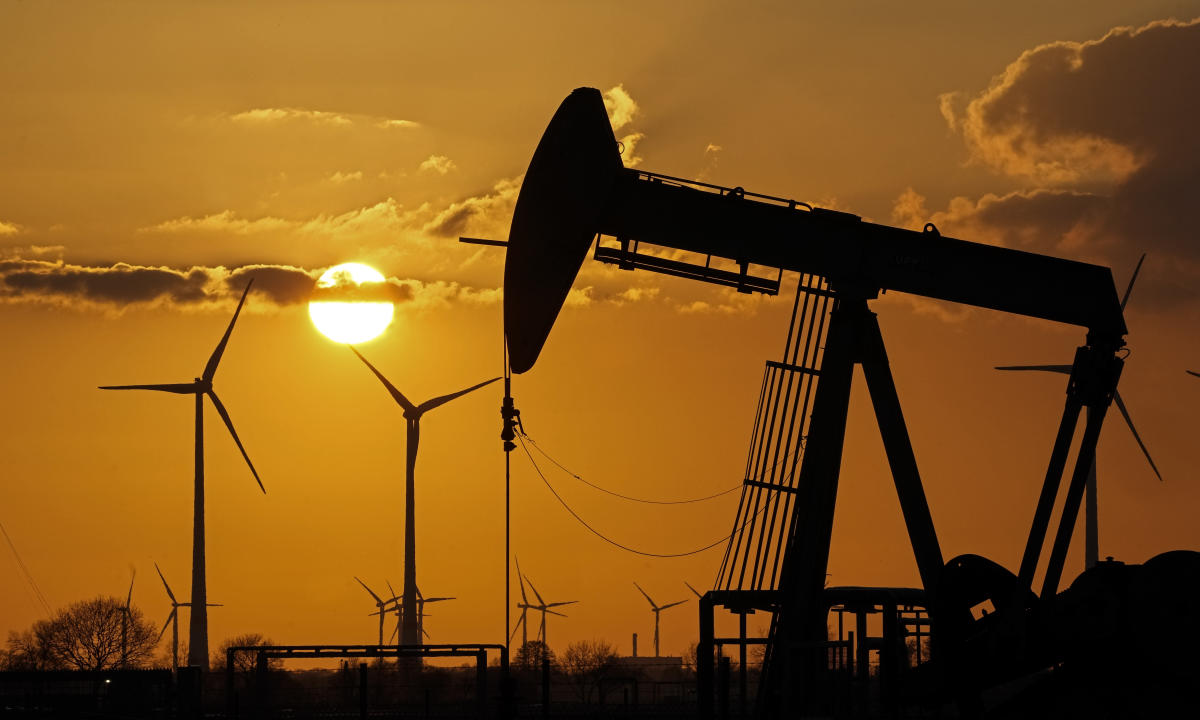WARSAW, Poland (AP) – Poland on Wednesday announced steps to end all Russian oil imports by the end of 2022, as Germany issued a warning over natural gas supplies and urged consumers to conserve energy in a sign of escalating economic tensions in Europe over Russia’s war in Ukraine.
Poland has already largely reduced its dependence on Russian oil, Prime Minister Mateusz Morawiecki said.
Morawiecki told a news conference that Poland launched the most radical plan among European countries to phase out Russian energy resources.
Poland said on Tuesday it is banning Russian coal imports. Morawiecki said he expects gas imports to be reduced in May.
Morawiecki says Poland will take steps to become “independent” from Russian supplies and calls on other European Union countries to “walk away” from Russia’s fossil fuels. Poland argues that money from oil and gas exports fuels the Russian war machine and that that should stop.
Morawiecki called on the European Commission to tax all hydrocarbons imported from Russia to make trade “just”.
Poland has taken steps to reduce dependence on Russian gas. A liquefied gas terminal was built in Swinoujscie and is now being expanded to include supplies from Qatar, the US, Norway and other exporters. A new Baltic pipeline bringing gas from Norway is due to open by the end of this year.
In Germany, the government issued early warnings about natural gas supplies and called on consumers to save energy amid concerns that Russia could halt supplies unless paid in rubles.
Western countries have rejected Russia’s demand for ruble payments, arguing that it would undermine sanctions imposed on Moscow over the war in Ukraine.
Economy Minister Robert Habeck said the move was a precautionary measure as Russia is still fulfilling its contracts so far. But he appealed to companies and households in Germany to start reducing their gas consumption.
“There have been several comments from the Russian side that if this (payments in rubles) does not happen, deliveries will be halted,” he told reporters in Berlin, adding that Moscow is expected to have new rules for gas payments on Thursday. “To be prepared for this situation, I activated the alert level today.”
Habeck, who is also Germany’s energy minister and vice-chancellor, said this was the first of three alert levels and involved the creation of a crisis team in his ministry that will step up monitoring of the gas supply situation.
The German energy industry association BDEW welcomed the government’s decision.
“Even if there is no shortage, it is necessary that all involved have a clear roadmap in the event of a supply interruption,” said chairman Kerstin Andreae. “This means that we now have to make concrete preparations for the emergency phases, because if there is a supply interruption, it has to go quickly.”
The European Union has so far failed to adopt a blanket ban on energy imports from Russia. In addition to relying on Russian fossil fuels to run their economies, many Member States and EU officials are concerned that an embargo could be counterproductive, as Russia could sell its production of oil, in particular, to third countries, probably at a higher price. price.
Still, like other countries in the bloc, Germany has taken steps in recent weeks to reduce its reliance on fossil fuels from Russia over the war in Ukraine.
“On average, in Germany we have imported 55% of our gas from Russia in recent years and that has already fallen to 40%,” Habeck said. Berlin has agreements with several supplies of liquefied natural gas, or LNG, which is shipped to neighboring European countries and then pumped to Germany.
Habeck said the gas storage in Germany is currently about 25% full.
“The question of how long the gas will last basically depends on several factors (such as) consumption and the weather,” he said. “If there is a lot of heating, the sheds will be emptied.”
He added that Germany is prepared for a sudden halt to Russian gas supplies, but warned it would have “significant consequences” and urged consumers to play their part in avoiding a shortage by curbing demand. insist.
“We’re in a situation where, I have to say this clearly, every kilowatt hour of energy saved helps,” Habeck said. “And that’s why I would like to combine the activation of the alert level with a call on companies and private consumers to help Germany, help Ukraine, by saving gas or energy as a whole.”
The second warning level would oblige companies in the gas industry to take the necessary measures to regulate the supply. The third level of warning involves full state intervention in the gas market to ensure that those who need gas most — such as hospitals and private households — get it, Habeck said.
“We’re not there and we don’t want to go there,” he added.
†
Follow the AP’s coverage of the war at https://apnews.com/hub/russia-ukraine
†
Frank Jordans reported from Berlin. Samuel Petrequin in Brussels contributed to this report.

